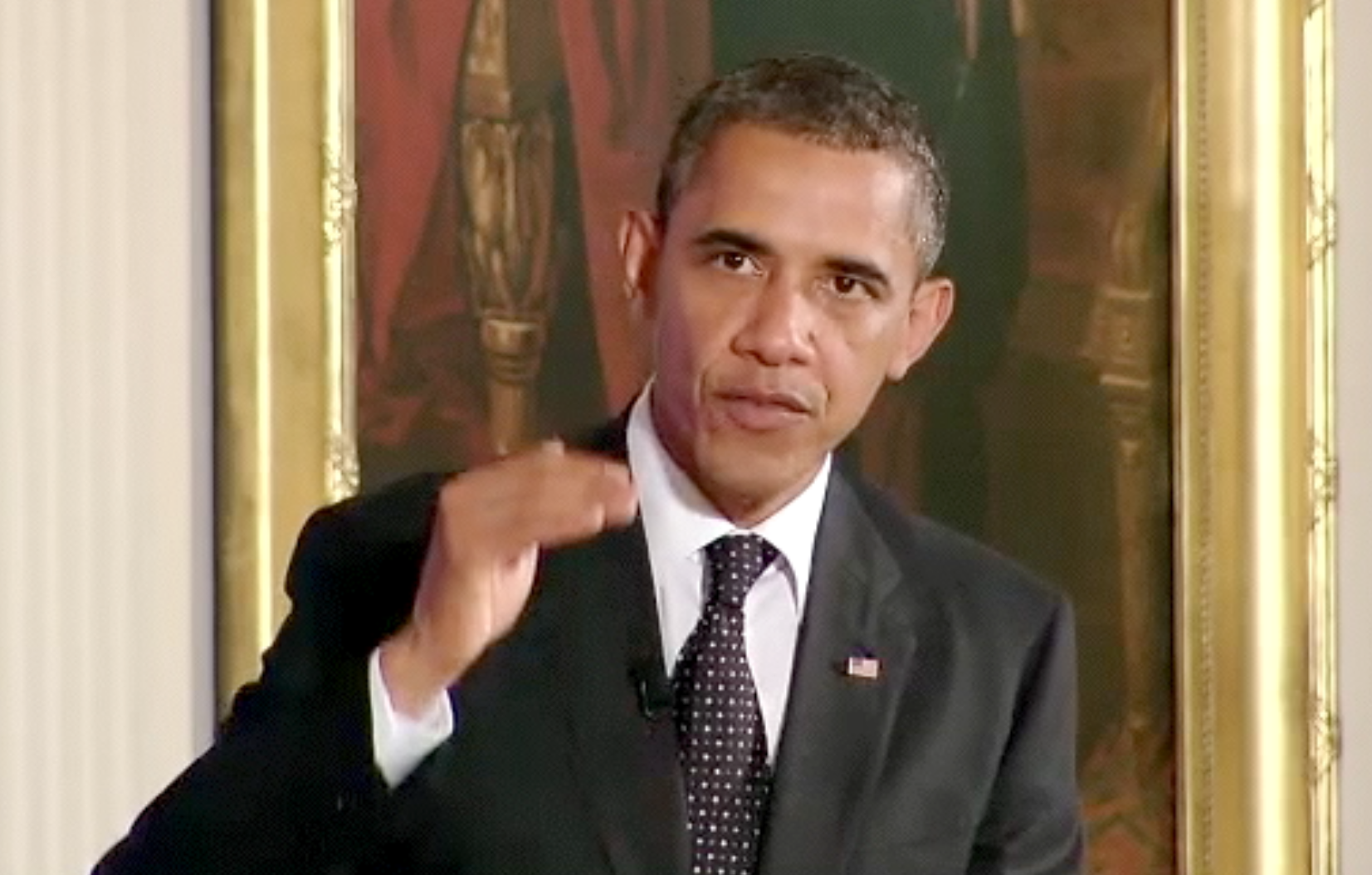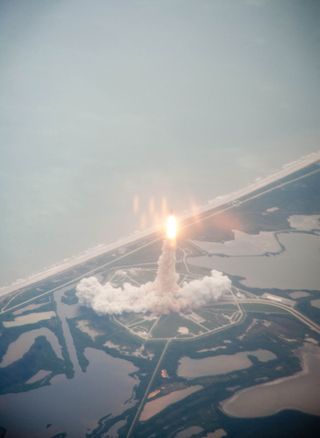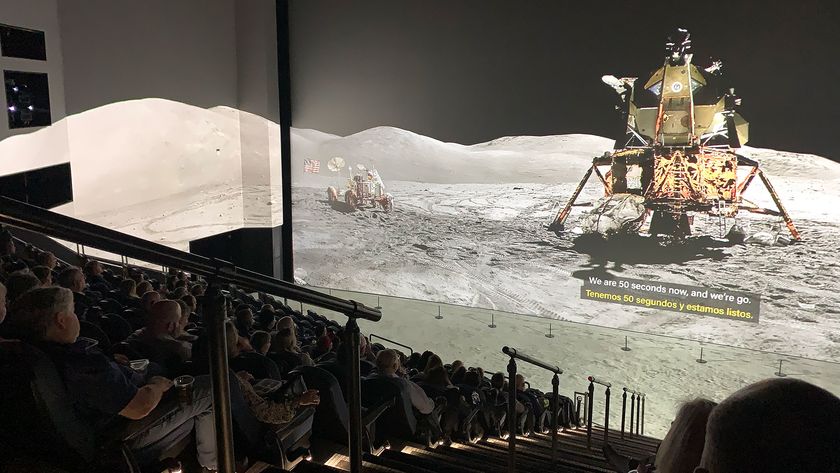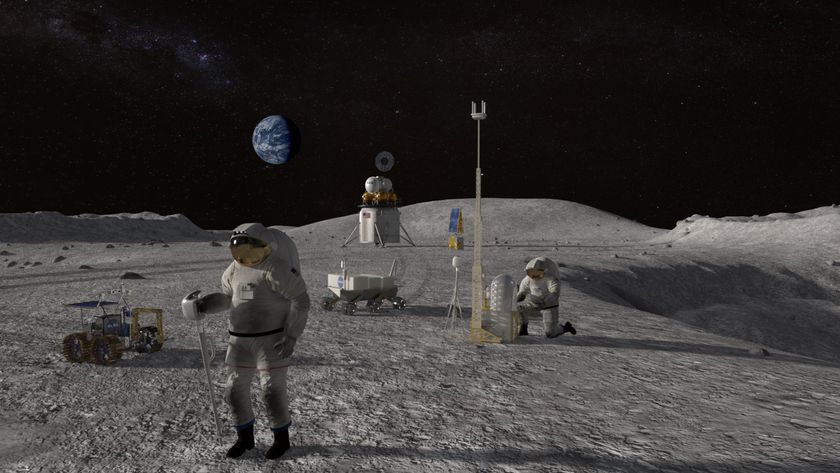
Obama Says Last Space Shuttle Launch Ends One Era, But Opens Another

President Barack Obama lauded NASA's final space shuttle launch Friday (July 8), saying that the blastoff marks the end of one chapter of human spaceflight, but also the start of a new one.
"Today's launch may mark the final flight of the Space Shuttle, but it propels us into the next era of our never-ending adventure to push the very frontiers of exploration and discovery in space," Obama said in a statement.
Atlantis launched into space at 11:29 a.m. EDT (1529 GMT) from the Kennedy Space Center in Florida, marking the final flight of the space shuttle program, which NASA is shutting down after 30 years of spaceflight. The shuttle is carrying four astronauts on a 12-day delivery mission to the International Space Station.
"Behind Atlantis and her crew of brave astronauts stand thousands of dedicated workers who have poured their hearts and souls into America's Space Shuttle program over the past three decades," said Obama, who did not attend the launch but did tour Atlantis with his family before launch. "To them and all of NASA's incredible workforce, I want to express my sincere gratitude. You helped our country lead the space age and you continue to inspire us each day." [Photos: President Obama and NASA]

American icon's last voyage
NASA is retiring its space shuttle fleet to make way for a new exploration program aimed at deep space missions. Thousands of NASA and shuttle contractor workers are expected to lose their jobs once the program is no more.
Previously, the agency planned to replace the shuttle program with a new one aimed at returning astronauts to the moon. But Obama canceled that plan and gave NASA a new directive for deep space exploration, including a crewed asteroid mission by 2025.
Get the Space.com Newsletter
Breaking space news, the latest updates on rocket launches, skywatching events and more!
"And I have tasked the men and women of NASA with an ambitious new mission: to break new boundaries in space exploration, ultimately sending Americans to Mars. I know they are up to the challenge – and I plan to be around to see it," Obama said.
Obama's comments came just days after he said NASA needs to develop new technologies in order allow faster and longer spaceflights.
"Frankly I have been pushing NASA to revamp its vision," Obama said on July 6 in answer to question from a Twitter user during a Town Hall event. "The shuttle did some extraordinary work in low orbit: experiments, the International Space Station, moving cargo. It was an extraordinary accomplishment and we're very proud of the work that it did. But now what we need is that next technological breakthrough." [Video: See Obama's Full Comments]
Future of U.S. spaceflight
NASA currently plans to use a new space capsule, called the Multi-Purpose Crew Vehicle, for future deep space missions. The vehicle is based on work for the agency's Orion spacecraft developed for the previous moon plan.
The heavy-lift rocket for the new program is called the Space Launch System, but the details of the booster are not yet final. This week, NASA officials said they plan to settle on a design for the new rocket by the end of summer.
NASA's space exploration plan will lead to new advances in science and technology, as well spur education, innovation and economic growth, the president said.
A major hurdle to Obama's deep space exploration vision is NASA's budget, which is mired in a maze of congressional battles over cutbacks.
On Thursday, the House Appropriations commerce, justice and science committee, which oversees NASA funding, released a $16.8 billion 2012 budget proposal for the agency that is nearly $2 billion less than what Obama proposed in his 2012 budget request.
The House proposal includes $1.95 billion for the Space Launch System, which is $150 million more than the heavy-lift rocket received for 2011 but nearly $700 million less the amount recommended in the NASA Authorization Act of 2010, which Obama signed into law in October.
In the meantime, Obama said Americans should take pride in the accomplishments of the shuttle program and he wished the shuttle's veteran astronaut crew well.
"Congratulations to Atlantis, her astronauts, and the people of America's space program on a picture-perfect launch, and good luck on the rest of your mission to the International Space Station, and for a safe return home," Obama said in the Friday statement. "I know the American people share my pride at what we have accomplished as a nation, and my excitement about the next chapter of our preeminence in space."
You can follow SPACE.com Managing Editor Tariq Malik on Twitter @tariqjmalik. Visit SPACE.com for complete coverage of Atlantis' final mission STS-135 or follow us @Spacedotcom and on Facebook.
Join our Space Forums to keep talking space on the latest missions, night sky and more! And if you have a news tip, correction or comment, let us know at: community@space.com.

Tariq is the Editor-in-Chief of Space.com and joined the team in 2001, first as an intern and staff writer, and later as an editor. He covers human spaceflight, exploration and space science, as well as skywatching and entertainment. He became Space.com's Managing Editor in 2009 and Editor-in-Chief in 2019. Before joining Space.com, Tariq was a staff reporter for The Los Angeles Times covering education and city beats in La Habra, Fullerton and Huntington Beach. In October 2022, Tariq received the Harry Kolcum Award for excellence in space reporting from the National Space Club Florida Committee. He is also an Eagle Scout (yes, he has the Space Exploration merit badge) and went to Space Camp four times as a kid and a fifth time as an adult. He has journalism degrees from the University of Southern California and New York University. You can find Tariq at Space.com and as the co-host to the This Week In Space podcast with space historian Rod Pyle on the TWiT network. To see his latest project, you can follow Tariq on Twitter @tariqjmalik.


